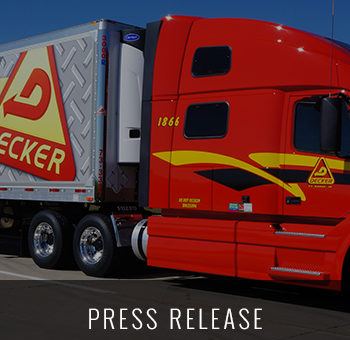
“Doing the Right Things Right”
By: Don Osterberg, Board of Advisors, SmartDrive Systems, Inc.
In a recent post I discussed the importance of viewing safety through both a moral and a financial lens when making capital investment prioritization decisions. I also took the opportunity to highlight the emerging reality in post-crash litigation, that motor carriers and commercial drivers are often guilty until they prove themselves innocent. Finally, I tried to simplify all of the noise that characterizes discussions about moral and financial imperatives by suggesting, when in doubt—”do what’s right.”
Let me expand on that simple guiding principle in the context of selling safety to drivers and operations leaders. During my 15 years with Schneider, we were guided by an enduring credo that “nothing we do is worth harming ourselves or others.” Eight simple words that had the power to influence everything we did. When drivers and leaders confronted tension between the competing demands they faced, this simple phrase instructed them how to reconcile the tension.
Our CEO also expanded on the “do what’s right” theme by adding “do the right things right.” During my military career, we recognized the importance of commanders communicating their intent for every operation, such that soldiers were empowered to take actions in combat, even without specific orders. Understanding the commander’s intent enabled initiative and agility at every level. In trucking, the guidance to “do the right things right” communicates a powerful leader’s intent, influencing the planning and execution of our dynamic business every day.
Do the Right Things Right
Last time we discussed doing what’s right. Today let’s focus on doing things right. The words appear subtly different, but the meaning is significantly so.
Doing things right is a qualitative statement that guides us to strive for operational excellence in everything we do. We are currently in the midst of the football season. I could draw many similarities between football and trucking. Both require dedicated, hard-working professionals to perform with discipline and precision. Whether you’re a football team or a motor carrier, excellence is achieved and sustained through critically and continuously assessing your individual and collective performance. In football, every play is videotaped. Today, when the quarterback gets to the sideline, a coach is there with a tablet reviewing the previous series. Following each game, coaches review the videotape and critique every player and every play, all with the intent to “do things right.”
Doing Things Right … in Commercial Transportation
In commercial transportation, our drivers are the players and our leaders are the coaches. Fortunately, today, tools are available that enable near-real-time performance monitoring that provide the basis for focused, positive and constructive coaching and recognition. With the right tools in the hands of skillful coaches and embraced by drivers as an essential way to continuously improve their performance, we are better able to consistently “do things right.”
By making a habit of doing things right, over time, we have fewer crashes and incidents that consume the valuable time of our task-saturated operations leaders. Time spent coaching to enable success is better than time spent investigating instances when we fail.
Doing the right things requires investments in safety technologies and proactive programs that enable us to do things right. The role trucking plays for our economy dwarfs the importance of the game of football. In football, if excellence isn’t achieved, a game is lost. When commercial drivers and carriers fail to achieve excellence, people are injured or killed. The stakes are simply too high to allow our performance to be passively managed. So, as I mentioned last time–when in doubt, do the right things (and do them right).
Click here to check out Don’s first blog in this series.
Don Osterberg, safety advisor, formerly served as senior vice president of safety, security and driver training for Schneider. His distinguished career in commercial transportation spans several decades, and he is a recognized authority on carrier safety, having held leadership roles with organizations including the National Safety Council, FMCSA Motor Carrier Safety Advisory Committee, American Trucking Association’s Safety Policy Committee and American Transportation Research Institute’s Research Advisory Committee. Osterberg is a retired Airborne and Ranger qualified US Army Infantry Colonel. Prior to entering into the commercial transportation industry, he held many leadership positions during his military career including Chief Plans Officer for the 1st Infantry Division (The Big Red One) during Operation Desert Storm and an appointment as the strategic advisor to the President and Chairman of the Joint Chiefs of Staff while serving on the National Airborne Operations Center staff.
- Posted by Melissa.Senoff@smartdrive.net
- On November 8, 2017

